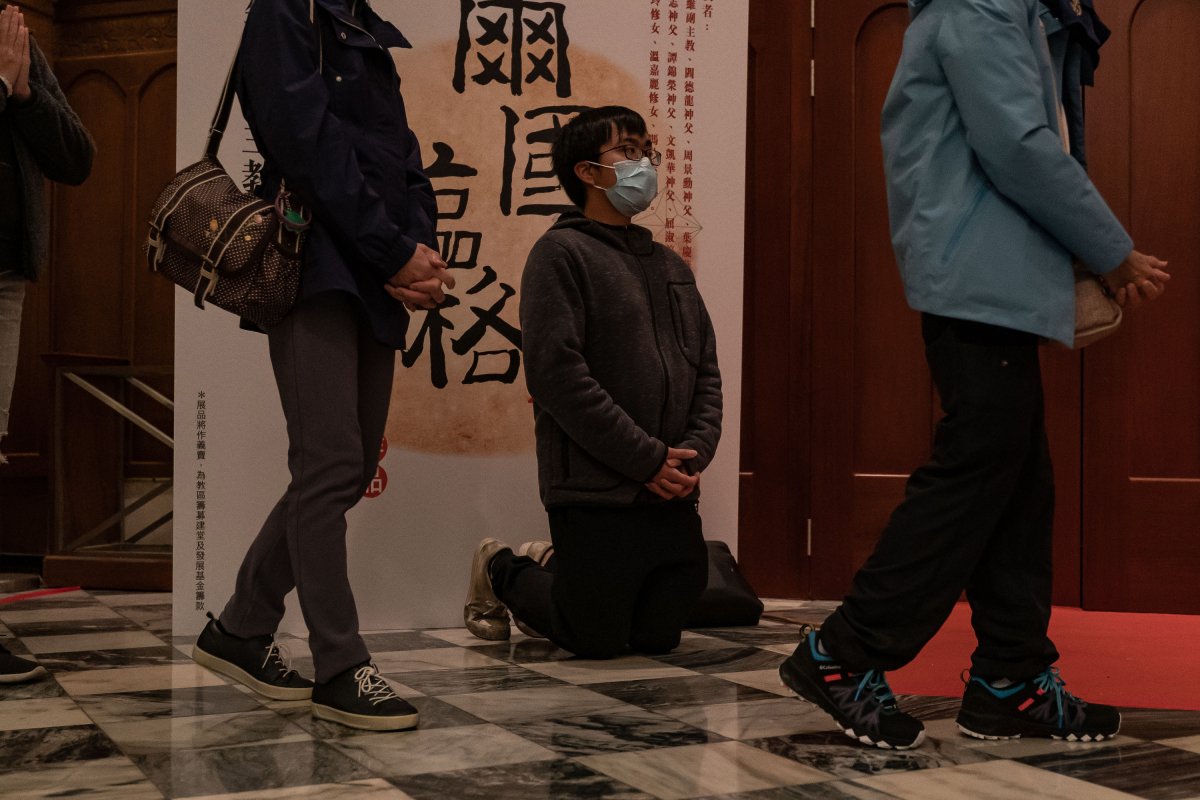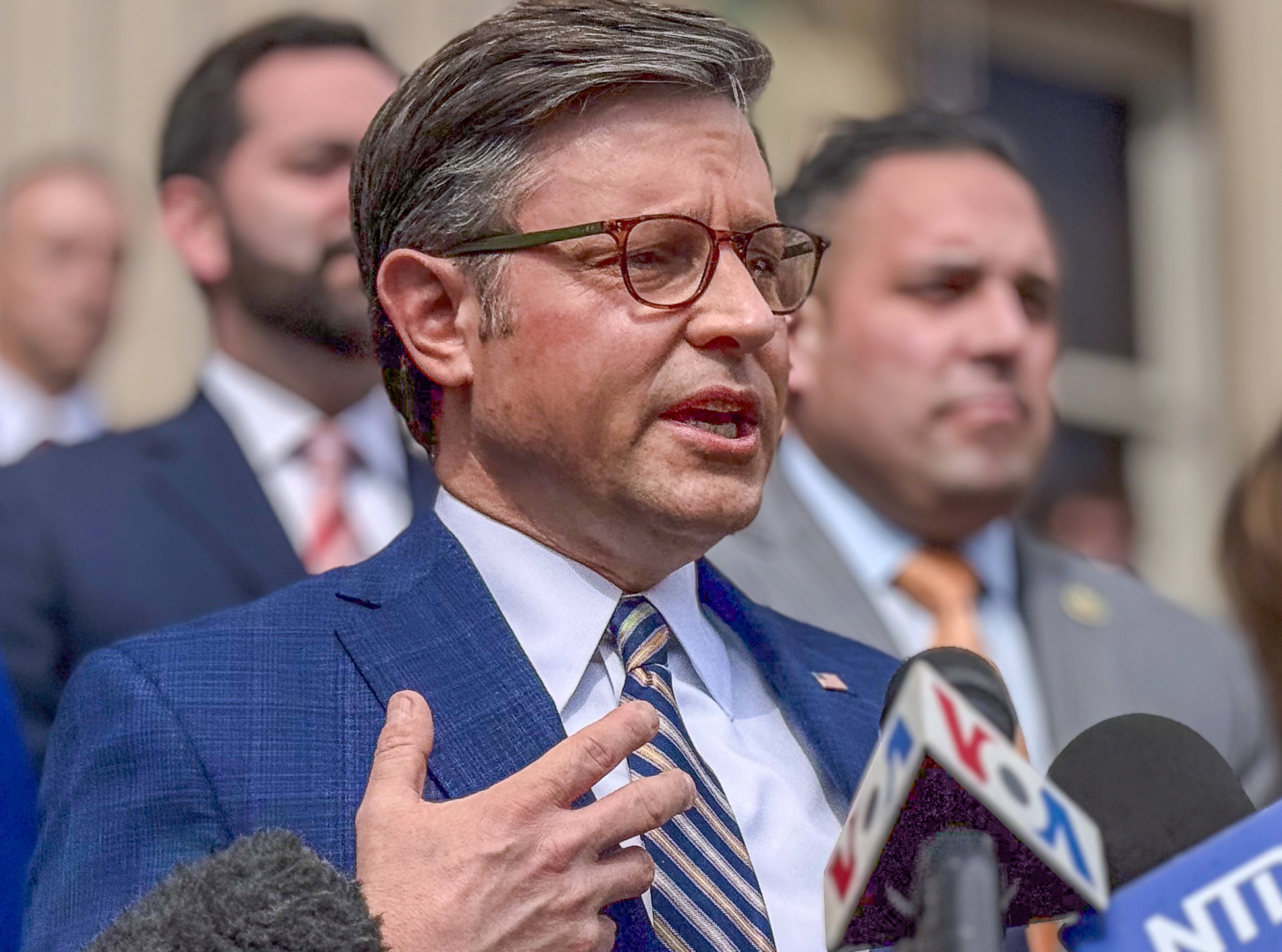For Catholics, the sacrament of penance (better known as confession) is a wonderful Lenten preparation for the Easter celebration of Our Lord's resurrection. But for Hong Kong's priests and penitents, reconciling with God could come at a horrible price. A new national security law, Article 23, threatens to ensnare them, breaching the seal of the confessional.
Unanimously adopted March 19 by Hong Kong's assembly, the law says that failing to report someone known to have committed "treason" within a reasonable time frame is a crime punishable by up to 14 years in prison. In response to questions from lawmakers, Justice Secretary Paul Lam said it would be "very difficult to create exceptions" for clergy and social workers. In other words, the law could allow Beijing-controlled police to demand to know what has been said in confession.
Hong Kong is home to around 392,000 Catholics out of a total population of more than 7 million. Just days before the law was passed, the Communications Office for the Diocese of Hong Kong released the following statement:
1. With regard to the legislation of Article 23 on safeguarding national security, the Catholic Diocese of Hong Kong recognizes that as a citizen, it has obligation to national security;
2. The Catholic Diocese of Hong Kong has expressed its views on Article 23 legislation;
3. The legislation of Article 23 will not alter the confidential nature of Confession (Sacrament of Reconciliation) of the Church.
Short. Simple. Unequivocal.
Under the Church's code of Canon Law, "the sacramental seal [of penance] is inviolable; therefore it is absolutely forbidden for a confessor [i.e., the priest] to betray in any way a penitent in words or in any manner and for any reason." And, in 2019, Pope Francis published a note explaining the "Importance of the Internal Forum and the Inviolability of the Sacramental Seal." The secrecy, the Pope explained, "comes directly from the revealed divine right and is rooted in the very nature of the sacrament, to the point of not admitting any exception in the ecclesial sphere, nor, least of all, in the civil one."

Though the Church may be taking that stand, the Chinese government seems to view things differently. Its attack on the religious freedom of Catholic priests and the laity in Hong Kong is unmistakable.
Before the new law in Hong Kong was passed, 16 international experts issued a joint statement expressing "profound and grave concerns" about the looming threat to religious freedom in Hong Kong. Organized by British human rights campaigner Benedict Rogers and exiled Hong Kong activist Frances Hui, the statement asserted that, "while a priest might encourage a penitent who has committed a serious crime to confess that crime to the authorities, the priest cannot report it himself and must never be held criminally liable for having heard that confession." The experts also highlighted the unjust imprisonment of Catholic media mogul Jimmy Lai, noting that "the proposed legislation criminalizes as 'sedition' any attempt to advocate for legislative changes or criticize the People's Republic of China and, where these activities are conducted by foreign NGOs, 'external interference.'"
This past January, Lai pled not guilty to charges of conspiracy to produce seditious publications and conspiracy to collude with foreign powers. He has been arrested and imprisoned several times since 2020 and his Apple Daily newspaper was forced to close in 2021. And Lai is not the only Hong Konger who has courageously defended democracy. The retired bishop of Hong Kong, Cardinal Joseph Zen, has spoken out against the creep of authoritarianism. He was arrested in May 2022 and held on national security grounds, including alleged collusion with foreign agents. Amid a huge international outcry, he was only convicted and fined for failing to officially register a fund helping pro-democracy protesters.
In the United States, attempts have been made in recent years by state elected officials to remove the Catholic Church's right to the seal of confession and force priests to provide private information relating to child abuse divulged during confession. So far, they have not succeeded. No one knows how the police would gather the information; you can hardly hide a cop in a confessional box and using secret microphones would be illegal.
But Hong Kong is different. I wouldn't put it past the authorities to bug confessionals. They may be already doing so, of course; but this new law would sweep away all legal protections for Catholics seeking absolution. The international community must speak out now.
Andrea Picciotti-Bayer is Director of the Conscience Project.
The views expressed in this article are the writer's own.
Uncommon Knowledge
Newsweek is committed to challenging conventional wisdom and finding connections in the search for common ground.
Newsweek is committed to challenging conventional wisdom and finding connections in the search for common ground.
About the writer
To read how Newsweek uses AI as a newsroom tool, Click here.








